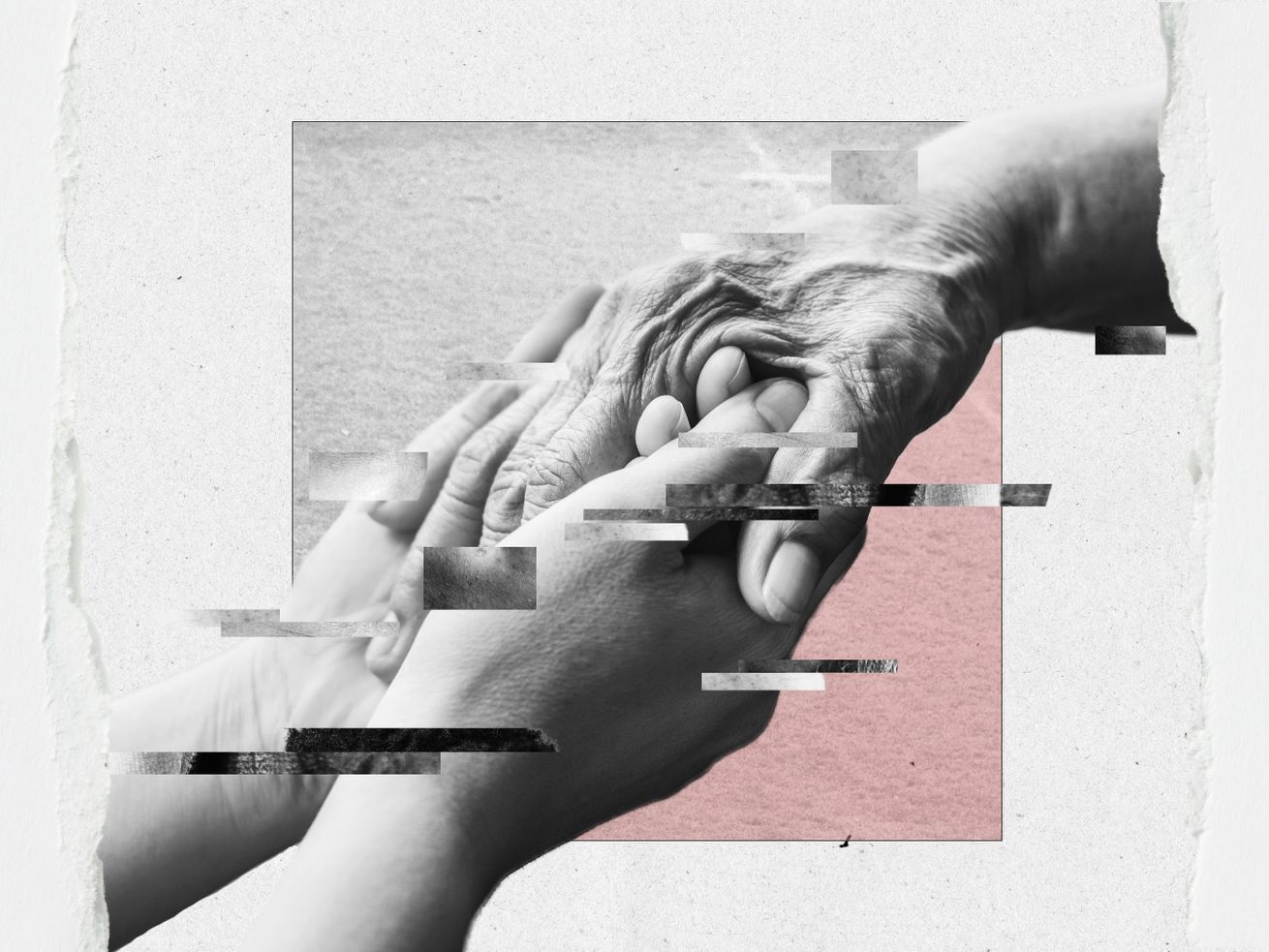Alzheimer’s patients and families live in a cloud of uncertainty. It’s about to get worse.
Alzheimer’s disease is, among all the ailments that afflict humanity, perhaps the most terrifying: a disease that robs a person of their identity and disintegrates their relationships; for which there is no proven treatment or cure; and that can last for years, requiring enormous sums of money to ensure that many patients have specialized or round-the-clock care.
And it all leads toward an inevitable destination: death. Because this is also a disease with a 100 percent fatality rate.
That is the reality that millions of Americans and their families are currently confronting, and that millions have before them. They are the people at the center of the fight over the FDA’s controversial approval of Aduhelm, the first new Alzheimer’s drug in decades.
The FDA approved Aduhelm over the objections of its own scientific advisers, who said the mixed evidence of its benefits did not outweigh the known risks. The agency has now called for an independent investigator to probe the approval process. Medicare has begun a months-long process to decide whether it should cover Aduhelm and for whom, and several private health insurers have said they won’t cover the drug, given the limited evidence of its effectiveness. Last week, the Cleveland Clinic and Mount Sinai, two of the best-known hospital systems in the US, said they wouldn’t administer it for the same reason.
This isn’t an unprecedented situation — the FDA has approved treatments with shaky evidence for some cancers and for muscular dystrophy — but this time is especially fraught.
One reason is the nature of the disease itself; how it erodes a person’s autonomy. People are desperate for any way to slow it down.
“‘I can’t read a book.’ ‘I can’t make a meal for my friends.’ I think that’s what’s uniquely devastating about the disease,” said Jason Karlawish, a practicing physician and researcher who published The Problem of Alzheimer’s earlier this year. “You meet someone who has the disease and they are not the same. Is what’s coming out of them still their mind or is it the disease talking?”
The other is the breadth of the population affected: the 6 million Americans who have been diagnosed with Alzheimer’s and their families, and a much broader group who have reason to fear that they might someday have it, too. As many as 47 million Americans could be living with preclinical iterations of the disease, according to one estimate from researchers at UCLA, although not all of them will end up experiencing the dementia that is its hallmark.
Emily Largent, a medical professor who works at the Penn Memory Center and has conducted interviews with people who discover they may be at higher risk of the disease, remembers vividly how one of her subjects described the distinctive horror of Alzheimer’s.
“A colonoscopy isn’t going to change who I am,” the person said. “But this is my brain.”
Alzheimer’s disease throws patients and families into a unique cloud of uncertainty. The disease itself is not well understood and can be confused for other conditions. They can’t know how quickly it will progress or how many more lucid moments the patient will have. They have to rethink the rest of their lives.
Now they face only more uncertainty surrounding a new FDA-approved drug coming to market that may not actually be effective.
The many anxieties of Alzheimer’s disease
Five years ago, Sarah Gilbert started noticing something was off with her mom.
At first, it was little things, like forgetting her car keys. But then one day, Gilbert went to pick up her mom for their lunch date and she didn’t show; she finally found her mom wandering aimlessly around her home in central Oregon. The episode launched a five-year odyssey of doctor appointments, misdiagnoses, and ineffective medications that finally concluded this summer with a verdict: Her mom, now 72, likely has Alzheimer’s disease.
“The first couple days, I felt like a shell of my own self. Why us? Why me? It’s not fair,” she told me. “It felt like it came out of the blue.”
Her family had to figure out what to do, but there was so much they didn’t know and couldn’t know yet. Her parents had planned well financially for their retirement, but they hadn’t planned for this. Gilbert fears that her dad “is going to work himself into the ground worrying about the financial stuff.”
Gilbert is also a nurse, and as much as she wanted answers, she already knew Alzheimer’s disease defies them. Science has made strides in identifying the biological markers in the brain that would indicate a person is at higher risk of Alzheimer’s disease, but there is still a long way to go.
“I need to know why this is happening … But they just don’t know. There’s just so much gray,” Gilbert said. “[The doctor] has not been able to tell me, ‘She’s going to live 10 years,’ or, ‘She’s going to be at this cognitive level for three years.’ ”
A 2021 report from the Alzheimer’s Association ticks through a dozen risk factors for the disease, ranging from age (the most important one) and family history (important, but not definitive) to cardiovascular health and diet. Even education and social engagement might contribute.
But each risk factor comes with uncertainty, and many people do not know pertinent information about their own risk. Gilbert said her mother didn’t have a relationship with her own biological father, and although they do not know his diagnosis, the family recently learned that he died in a memory care unit, the last stop for many Alzheimer’s patients.
The disease also progresses differently for every person. The symptoms can be wide-ranging and personality changes can be unpredictable. Even a newly diagnosed patient who previously cared for a loved one with the disease, intimately familiar with its horrors — a fairly common occurrence, according to people who work with those patients — may not have the same experience their family member did.
For all these reasons, learning you may be at a higher risk of Alzheimer’s disease can feel even more traumatic than learning about your risk of other conditions.
“People say this is different than other medical tests. They feel like it has unique implications for their sense of identity,” Largent said. ”If you have diabetes, you can take insulin. But when it gets to Alzheimer’s disease, there’s not a lot that can be done. People are very aware of that.”
They worry about stigma, from employers and strangers, even from their families. That stigma has been reinforced by the perception that Alzheimer’s disease is a mystery. Until recently, a doctor couldn’t even be sure their patient had the disease until the person died and their brain could be examined.
“I know you have a disease in your brain, but I can’t tell you for sure until you’re dead,” Karlawish said. “It was kind of a gothic horror story.”
Patients also worry at the same time about becoming a burden on the family and about the costs, financial and emotional, their family will have to bear in caring for them.
According to the Alzheimer’s Association, the average annual out-of-pocket costs for Medicare beneficiaries with Alzheimer’s or other dementia add up to more than $11,500 a year. If a patient requires care at a long-term care facility, Medicare doesn’t cover it, and Medicaid won’t either until the person spends all of their assets so they will qualify for that means-tested program.
Those are the financial burdens. The emotional toll is unquantifiable.
“It’s torturous to many caregivers,” Alison Lynn, who works with and counsels caregivers at the Penn Memory Center, told me. She described what’s known in the field as “ambiguous loss,” a term initially created to describe the confusing kind of grief families would feel if a loved one died overseas in war and their body was never returned.
Now it is often applied to the families of Alzheimer’s patients, who have to endure the inverse of that wartime trauma.
“We have people here in body. A lot of them look totally normal,” Lynn said. “But their spirit is gone.”
Early in her mom’s disease, before they even knew it was Alzheimer’s, Sarah Gilbert asked her mom to knit her a quilt. Her mom was an artist; it was the kind of thing she’d always loved to do, and Gilbert thought it would bring some relief from the memory lapses she was experiencing.
But her mother quickly grew frustrated as she struggled with basic tasks like picking out fabrics.
“It got to the point where she was almost angry with me,” Gilbert said. “I think she was dealing with her own denial. She couldn’t accept the fact that she was declining.”
Aduhelm might add even more stress
This unique unknowability of Alzheimer’s disease also laid the groundwork for the controversial approval of Aduhelm last month, something that experts worry will only add to the anxieties of patients and families.
The science upon which the Biogen drug is based is known as the amyloid hypothesis. It holds that plaque in the brain found in Alzheimer’s patients is at least in part responsible for the disease and that therefore removing the plaque could help relieve patients’ symptoms. As recently as two years ago, when Biogen halted its clinical trials for Aduhelm because of the poor initial evidence, scientists were questioning whether the amyloid hypothesis was actually wrong, given how much time had passed without a treatment being found.
The company later concluded, through questionable methodology, that a certain subset of patients had seen a benefit from taking the drug and pushed ahead for approval, which was granted in June.
But any relief for patients or families that might have been provided by the Aduhelm approval was quickly undercut by the controversy.
/cdn.vox-cdn.com/uploads/chorus_asset/file/22725816/GettyImages_1131864009t.jpg) Scott Eisen/Bloomberg via Getty Images
Scott Eisen/Bloomberg via Getty Images/cdn.vox-cdn.com/uploads/chorus_asset/file/22725819/GettyImages_170403530t.jpg) Suzanne Kreiter/The Boston Globe via Getty Images
Suzanne Kreiter/The Boston Globe via Getty ImagesMedicare announced last week it would take the unusual step of undergoing a “national coverage determination,” a nine-month process to decide whether to cover Aduhelm and for which patients. Some experts I’ve spoken to think Medicare, which faces billions of dollars in costs because of the drug’s $56,000 price tag, shouldn’t cover it at all. Even advocates for Alzheimer’s patients who supported the drug’s approval worry some patients will need to spend as much as $10,000 of their own money to access it.
This morass has left patients and families struggling to make sense of the news. For her part, Gilbert said after reading more about the drug, she decided it wasn’t the right move for her mom. A conversation with their neurologist confirmed her decision. But it was still a bit of emotional whiplash.
“It was like having the rug pulled out from under you because you want some hope,” she told me. “But then you get down to the nitty-gritty and you’re back to square one.”
Lynn described to me a recent caregiver support group she led where family members appeared bitterly divided over what to do about Aduhelm. About half of them, she said, were enthusiastic, even after reading the negative news coverage and seeing the concerns about the drug’s unproven effectiveness.
“Their hope and the adrenaline of that hope outweighs all of their reason and they are clamoring for the drug,” Lynn said. “But there was an equal number of people who are angry as hell about this.”
Those people felt Biogen was preying on people’s desperation. Some of them were also caring for patients who would never benefit from Biogen’s drug, even if it did prove to be effective, because the disease has already progressed too far. But they still have the same problems in caring for their loved one and covering the cost of care that they did before.
This is how Lynn characterized their attitude: “Why is this $50,000 being thrown at this thing that’s not evidence-based when we have all these other needs?”
Karlawish told me he believed the FDA should not have approved the drug. When his patients ask him about it, he walks through the circuitous path to approval and he is frank about the uncertain benefits and the risks. He said that, ideally, no one would take the drug without an informed consent form, as part of a clinical trial.
But he also said that if, having heard all the information he has to provide, the patient decides they want to try it, he will be a reluctant prescriber. The disease is already robbing the person of their agency. He won’t do the same.
“I’m gonna have to respect that,” Karlawish said, “out of respect of their autonomy.”
So the struggle is far from over for Alzheimer’s patients, their families, and their doctors. Gilbert is trying to hold onto the small moments of clarity her mom still enjoys, knowing they are fleeting. The other weekend, their family gathered together to process the news of her mother’s diagnosis and to enjoy each other’s company, to have what they hoped would be one more good day.
She had teased her mom earlier in the day about a funky pair of sunglasses she was wearing and was heartened when, later that night, her mom texted her a picture with 10 pairs of “ridiculous” sunglasses she had pulled out of the closet. “Are any of these gonna work for you?” her mom quipped.
“That connection is still there,” Gilbert said. “It might be fleeting, but she’s still here.”
Yet the fear and pain are ever present — “a chronic dull ache,” as she put it.
For people who spend a lot of time around Alzheimer’s patients, every encounter is a reminder that, unless our understanding and treatment of the disease improve dramatically over the coming years, what they are seeing may be a window into their own future.
“It would be hard to not feel that way,” Lynn said. “Whenever we get a former social worker, I have this feeling of, ‘That could be you in 30 or 40 years.’”
Author: Dylan Scott
Read More



